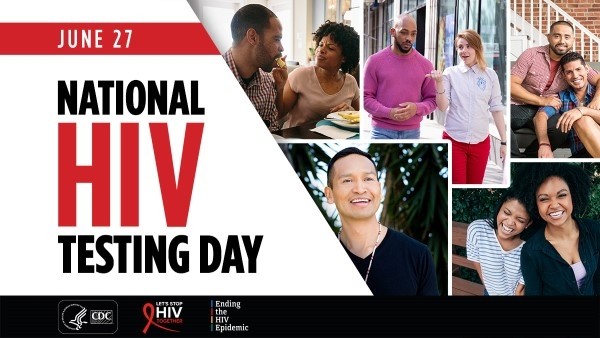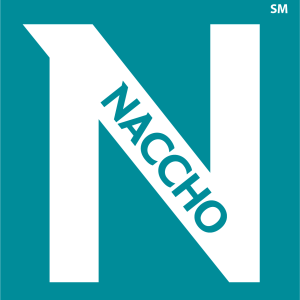Every year, National HIV Testing Day (NHTD) is observed on June 27 as a day to encourage people to get tested for HIV. An estimated 1.2 million people in the United States are living with HIV. One in seven—or nearly 162,000 people—are unaware of their status, despite CDC recommending HIV testing for every person between the ages of 13-64. This year’s NHTD theme is therefore centered around the power of “Knowing” — knowing your HIV status, as well as knowing the new ways to take an HIV test now that facility-based services and in-person contact are limited by the coronavirus pandemic.
As outlined in the federal government’s Ending the HIV Epidemic Initiative, HIV testing is critical in diagnosing HIV, identifying acute infections, and referring to HIV treatment or prevention options such as pre-exposure prophylaxis (PrEP), a daily pill that is highly effective in preventing HIV acquisition. Ensuring that people know their HIV status is the first step in getting connected to HIV care and treatment for those who are HIV-positive. People with HIV who take medication as prescribed and maintain viral suppression are known to have improved health outcomes. Knowing your status is not only crucial for HIV treatment, but there is also scientific evidence that “Undetectable = Untransmittable” (U=U), meaning those who are on medication and virally suppressed have effectively no risk of sexually transmitting HIV to a partner. To achieve the full benefits of HIV treatment and prevention options, HIV testing must be simple, accessible, and routine.
The National Association of County and City Health Officials (NACCHO), the voice of approximately 3,000 local health departments (LHDs), recognizes the efforts of its members as they work every day to keep their communities safe and healthy. Local health departments traditionally provide HIV testing at clinics and through community outreach efforts. This year, however, COVID-19 has forced many LHDs to suspend or reduce HIV testing and prevention services, as clinics have closed and staff have been reassigned from HIV-related activities to support the COVID-19-response. National HIV Testing Day therefore highlights self-testing as a strategy for individuals to know their status without visiting a testing facility. HIV self-testing allows people to take an HIV test and find out their result in their own home or other private location. While HIV self-tests are available for retail purchase by consumers, several LHDs are working to provide free or low-cost self-testing options via mail, outreach, and at community events. LHDs are uniquely positioned to engage with community partners and healthcare providers to ensure that HIV testing is available and that testing efforts are reaching priority populations, including communities of color, gay and bisexual men, transgender men and women, youth, and people who inject drugs.
The “In-home rapid HIV testing mailing option” has become a staple for the Community HIV Testing Program of the Thomas Jefferson Health District (TJHD) located in Virginia. TJHD serves 150,000 people in urban areas and another 100,000 in highly rural counties. This range can make in-person community testing difficult, especially amid the COVID-19 pandemic. “When it comes to testing for HIV, many factors may prevent someone from knowing their status, such as stigma, scheduling conflicts, or transportation issues. One way to overcome these barriers is to think outside the box, or in this case, inside the box,” explains Jason Elliott, Community Health Testing Coordinator at TJHD. To receive a test, community members must complete a short survey and are walked through the process by a certified tester. Plain brown packages are then mailed to the client and include test kits, safer sex items, and a list of local and state resources the patient may utilize before, during, or after the test. “This strategy has not only expanded the overall testing options but also served as a gateway to other health services and resources,” Elliott noted.
“On National HIV Testing Day, NACCHO commends local health departments across the country who continue to work tirelessly to maintain critical HIV treatment and prevention services despite the impact that COVID-19 is having on their existing programs, staffing, and structure,” said NACCHO Chief Executive Officer Lori Tremmel Freeman. “As an organization, we are committed to supporting local health departments and advocating on their behalf to ensure the necessary resources and capacity for increasing access to HIV testing, reducing disparities in HIV outcomes, and ensuring that our nation’s plan to end the HIV epidemic in the U.S. is a success.”
National HIV Testing Day Resources
- CDC’s National HIV Testing Day Resources: https://www.cdc.gov/hiv/library/awareness/testingday.html
- CDC’s HIV Self-testing Guidance: https://www.cdc.gov/nchhstp/dear_colleague/2020/dcl-042820-HIV-self-testing-guidance.html
- Ready Set PrEP: https://www.getyourprep.com/
About NACCHO
The National Association of County and City Health Officials (NACCHO) represents the nation’s nearly 3,000 local health departments. These city, county, metropolitan, district, and tribal departments work every day to protect and promote health and well-being for all people in their communities. For more information about NACCHO, please visit www.naccho.org.




